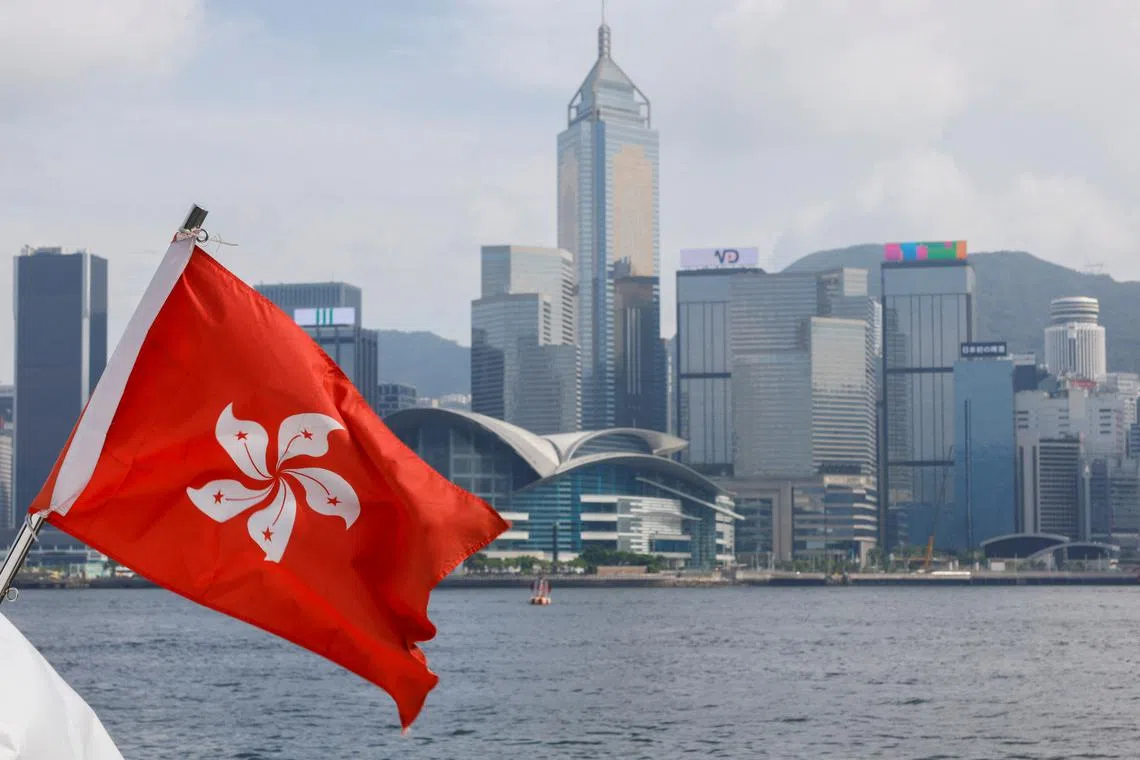Hong Kong issues arrest warrants for 19 activists based abroad
Sign up now: Get insights on Asia's fast-moving developments

Critics of the national security law say the authorities are using it to stifle dissent.
PHOTO: REUTERS
HONG KONG - Hong Kong’s national security police announced arrest warrants for 19 activists based overseas, accusing them of subversion under a stringent national security law, marking the largest such tally yet.
They are accused of organising or participating in the “Hong Kong Parliament”, a group the authorities in the Asian financial hub say aimed to subvert state power, under the law Beijing imposed in 2020 following months of pro-democracy protests in 2019.
The activists are accused of having launched a referendum or run as candidates in the unofficial “Hong Kong Parliament” group, which the authorities say aims at achieving self-determination and drafting a “Hong Kong Constitution”.
Police, who said the group sought to overthrow the governments of China and Hong Kong by unlawful means, said they are still investigating and further arrests may follow.
Among those named are businessman Elmer Yuen, commentator Victor Ho and activists Johnny Fok and Tony Choi. Four of them are subject to previous arrest warrants, each carrying a bounty of HK$1 million (S$167,000).
Among the remaining 15 – police are offering a bounty of HK$200,000 for each one – are those said to have organised or run in the election and sworn in as its councillors.
None of the accused could be reached for comment.
US Secretary of State Marco Rubio on July 26 condemned the move, which he said targeted some US-based individuals.
“We will not tolerate the Hong Kong government’s attempts to apply its national security laws to silence or intimidate Americans or anyone on US soil,” he wrote in a statement, calling it “a form of transnational repression”.
The UK’s Foreign and Home Secretaries also condemned the move in a joint statement, calling the arrests “another example of transnational repression” and saying it damages Hong Kong’s international reputation.
“(The UK) will not tolerate attempts by foreign governments to coerce, intimidate, harass or harm their critics overseas,” it said in a statement on July 25.
In response, the Chinese embassy in the UK said the British government’s remarks “constitute a gross interference” in China’s internal affairs and the rule of law in Hong Kong.
“China urges the UK to abandon its colonial mentality, stop interfering in Hong Kong affairs...stop shielding criminals,” it said.
The former British colony returned to Chinese rule in 1997 with the guarantee of a high degree of autonomy, including freedom of speech, under a “one country, two systems” formula.
Critics of the national security law say the authorities are using it to stifle dissent.
Chinese and Hong Kong officials have repeatedly said the law was vital to restore stability after the city was rocked for months by sometimes violent anti-government and anti-China protests in 2019
Police reiterated that national security offences were serious crimes with extraterritorial reach and urged the wanted individuals to return to Hong Kong and surrender.
“If offenders voluntarily give up continuing to violate the crime, turn themselves in, truthfully confess their crimes, or provide key information that helps solve other cases, they may be eligible for reduced punishment,” they said in a statement.
Police also warned that aiding, abetting or funding others to participate in the “Hong Kong Parliament” could be a criminal offence. REUTERS


